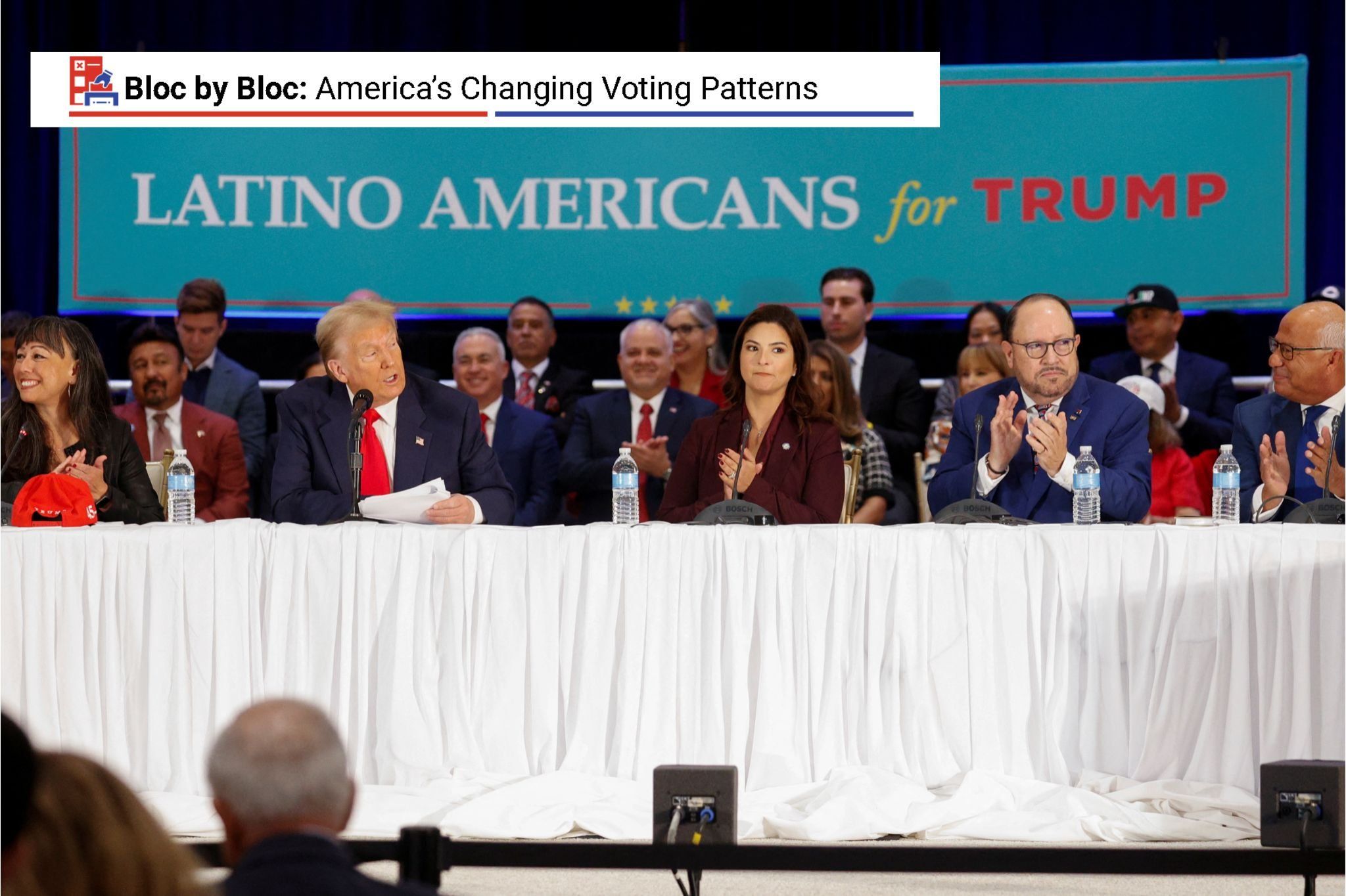This GZERO 2024 election series looks at America’s changing voting patterns, bloc by bloc.
________________________________
With less than two weeks before Election Day, both Kamala Harris and Donald Trump have been focusing on a diverse but potentially decisive bloc: Latino voters.
In recent days, the former president has done a Town Hall with the Spanish-language broadcaster Univision and a round table with Latino community leaders at his golf club in Doral Florida. The core of Trump's messaging has been to remind people of the pre-pandemic economy, which was boosted by tax cuts when he was president, and to paint Harris as a left-wing radical.
Harris, meanwhile, taped a prime-time interview with Spanish-language channel Telemundo in which she pledged to increase economic opportunities for Latino men and small business owners, in particular, and looked to counter Republican messaging that she is a “socialist.”
This sudden flurry of outreach is welcome, but it’s late, says Clarissa Martínez, vice president of the Latino Vote initiative at UnidosUS, a leading non-partisan Latino civil rights organization based in Washington, D.C.
“It’s frankly dumbfounding that the outreach has remained so low for an electorate that proved to be so decisive in 2020,” she says.
A recent UnidosUS study showed that barely a third of Latino voters had heard directly from the Democratic campaign at all, and less than a quarter had heard from Republicans.
Latino voters are a fast-growing bloc that now makes up 15% of the electorate. Half of all growth in newly eligible voters this cycle has come from Hispanics, and more than a fifth of Latino voters will be voting for president for the first time ever this November.
Latinos have long been a largely Democratic voting bloc – over the years, about 60-70% of Hispanics have voted for the Democratic presidential candidate.
But Trump’s support among Latinos has been edging up in the past two cycles – he got 28% of the Latino vote in 2016 and 32% in 2020. (For more on why, see our broader look at the Latino vote here.)
In fact, in the months before he dropped out of the race in July, President Joe Biden was actually trailing Trump among Latino voters, clocking just 40% support compared to the former president’s 46%, according to a New York Times/Siena poll.
Harris’ entry into the race has swung things back in the direction of the historical norm. The vice president is polling at 56% among Hispanics, against Trump’s 37% in the latest poll. Trump’s support is particularly strong among Latino men, where he trails Harris by just 3 points – among women the gap is 10 times as large.
Those numbers suggest Harris will likely win more of the Latino vote than Trump, but the margins are what matters, particularly in key swing states where lots of Latino votes are up for grabs.
There are more than 600,000 registered Latino voters in Pennsylvania, which Biden won by barely 80,000 votes in 2020. In Wisconsin, which Biden won by a mere 25,000 votes, there are 180,000 registered Latinos. In Nevada, nearly one in five registered voters is Latino.
The two candidates’ focus on economic issues is no accident. Polls consistently show the top three issues for Latino voters are inflation, jobs, and housing costs. Immigration reform – where most Latinos support stronger border security alongside a path to citizenship for long-time undocumented immigrants in good standing – is barely in the top five.
As Election Day approaches, the urgency of reaching Latino voters is only rising, according to Martínez of UnidosUS, who says about a third of Latinos still say they don’t have enough information to choose.
And the key subset to watch in this cycle? “It’s the new Latino voters,” she says. “That’s where you are seeing the biggest churn between the parties. How those voters break is going to be the thing to look at.”
“But meaningful outreach is essential,” she says, “You can’t just expect people to know what you stand for.”
This article updates our more in-depth look at the Latino vote, which we published before Biden dropped out of the race. You can find that piece here. Our entire series of Bloc by Bloc profiles of key demographic groups is housed here.
